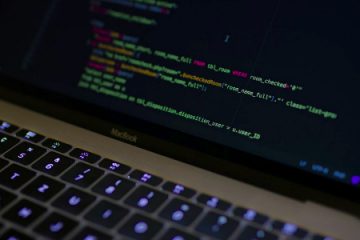This howto is tested on:
- Debian 10.0 Buster
This howto is tested with these versions of the software:
- 7.0.4
Requirements
This howto recommends:
- a Seafile server, as described by Installer Seafile sur Debian (fr).
Settings
Choose the user running the software on the system:
seafcliUser="www-data"Installation
Detect if sudo is available (“command” is used if not):
cmdProxy='command'
command type -f 'sudo' &>'/dev/null' && cmdProxy='sudo'Detect the distribution version name:
debianVersion="$(command lsb_release -cs)"Compute the software data cache path for the chosen user:
seafcliDataPath="/var/lib/seaf-cli/${seafcliUser}"Create the data path and set its owner:
${cmdProxy} mkdir --parent "${seafcliDataPath}"
${cmdProxy} chown "${seafcliUser}:${seafcliUser}" "${seafcliDataPath}"Environment setup
Install the software’s requisites:
${cmdProxy} apt-get install 'sudo' 'ca-certificates' \
'lsb-release' 'gnupg'Configure the software’s repository:
${cmdProxy} tee "/etc/apt/sources.list.d/seafile.list" \
<<< "# Seafile for ${debianVersion}
deb http://deb.seadrive.org ${debianVersion} main"Add the repository’s signing key:
${cmdProxy} apt-key adv --keyserver 'hkp://keyserver.ubuntu.com:80' \
--recv-keys '8756C4F765C9AC3CB6B85D62379CE192D401AB61'Update the list of available packages:
${cmdProxy} apt updateSoftware installation
Install the software:
${cmdProxy} apt-get install 'seafile-cli'Install a script restarting seaf-cli services when the “seafile-cli” package has been upgraded less than 120 minutes ago:
${cmdProxy} tee '/var/lib/seaf-cli/seaf-cli-restart' \
<<< "#\!/bin/bash
# Check if seafile-cli package has been upgraded in the last 120 minutes.
# end this script if the package has not been upgraded recently.
find '/var/lib/dpkg/info' -name 'seafile-cli.list' -mmin '-120' >'/dev/null' \\
|| exit 0
# Restart each active seaf-cli services
find '/etc/systemd/system' -type f -name 'seaf-cli-*.service' \\
| while read serviceFile; do
serviceName=\"\$(basename \"\${serviceFile}\")\"
systemctl is-active \"\${serviceName}\" >'/dev/null' 2>&1 \\
&& systemctl restart \"\${serviceName}\"
done
exit 0"
${cmdProxy} chmod +x '/var/lib/seaf-cli/seaf-cli-restart'Trigger seaf-cli services restart after upgrade:
${cmdProxy} tee '/etc/apt/apt.conf.d/90seafile-cli' \
<<< '// Restart seafile-cli services after upgrade.
DPkg::Post-Invoke {
"[ -x '/var/lib/seaf-cli/seaf-cli-restart' ] && /var/lib/seaf-cli/seaf-cli-restart";
};'Initialization
Install the software as a service for the chosen user:
${cmdProxy} tee "/etc/systemd/system/seaf-cli-${seafcliUser}.service" \
<<< "[Unit]
Description=Seafile client for user ${seafcliUser}
# add seafile.service and seahub.service here if the client is on the same host as the Seafile server.
After=network.target
[Service]
Type=forking
ExecStart=/usr/bin/seaf-cli start
ExecStop=/usr/bin/seaf-cli stop
User=${seafcliUser}
Group=${seafcliUser}
[Install]
WantedBy=multi-user.target"
Reload systemctl configuration:
${cmdProxy} systemctl daemon-reloadSet the seafile data cache path for the chosen user:
sudo -u "${seafcliUser}" seaf-cli init -d "${seafcliDataPath}"Start the service at boot:
${cmdProxy} systemctl enable "seaf-cli-${seafcliUser}"Start the service:
${cmdProxy} systemctl start "seaf-cli-${seafcliUser}"Configuration
Synchronization of a Seafile library
Settings
Provide the URL of the Seafile library to synchronize locally (copy/pasted from the browser):
libraryUrl='https://seafile.domain.com/library/fa9df3e8c-2de3-5f82-9ca3-ad53678033b8/ASeafileLibrary/'Choose the local path for the library:
libraryPath="${HOME}/seafile/"Configuration
Compute the library ID and the Seafile server URL:
seafileServer="$(command echo "${libraryUrl}" \
| command sed -e 's|\(http[s]*://[^/]*/\).*$|\1|')"
libraryId="$(command echo "${libraryUrl}" \
| command sed -e 's|^.*/library/||' -e 's|\([^/]\)/.*$|\1|g')"Make sure the local library path exists:
${cmdProxy} mkdir -p "${libraryPath}"
${cmdProxy} chown "${seafcliUser}" "${libraryPath}"Register the library with the Seafile client service:
sudo -u "${seafcliUser}" seaf-cli download \
-l "${libraryId}" \
-s "${seafileServer}" \
-d "${libraryPath}"The library can be synchronized with an existing folder contents:
sudo -u "${seafcliUser}" seaf-cli sync \
-l "${libraryId}" \
-s "${seafileServer}" \
-d "${libraryPath}"Removal
Detect if sudo is available (“command” is used if not):
cmdProxy='command'
command type -f 'sudo' &>'/dev/null' && cmdProxy='sudo'Stop and remove the seaf-cli services:
command find '/etc/systemd/system' -type f -name 'seaf-cli-*.service' \
| while read serviceFile; do
serviceName="$(command basename "${serviceFile}")"
${cmdProxy} systemctl 'stop' "${serviceName}"
${cmdProxy} systemctl 'disable' "${serviceName}"
${cmdProxy} rm "${serviceFile}"
doneReload systemctl configuration:
${cmdProxy} systemctl daemon-reloadRemove the software:
${cmdProxy} apt-get autoremove 'seafile-cli'The folders synchronized by Seafile can now be removed.
Thanks
- Thanks to Seafile (en) developers.



0 Comments